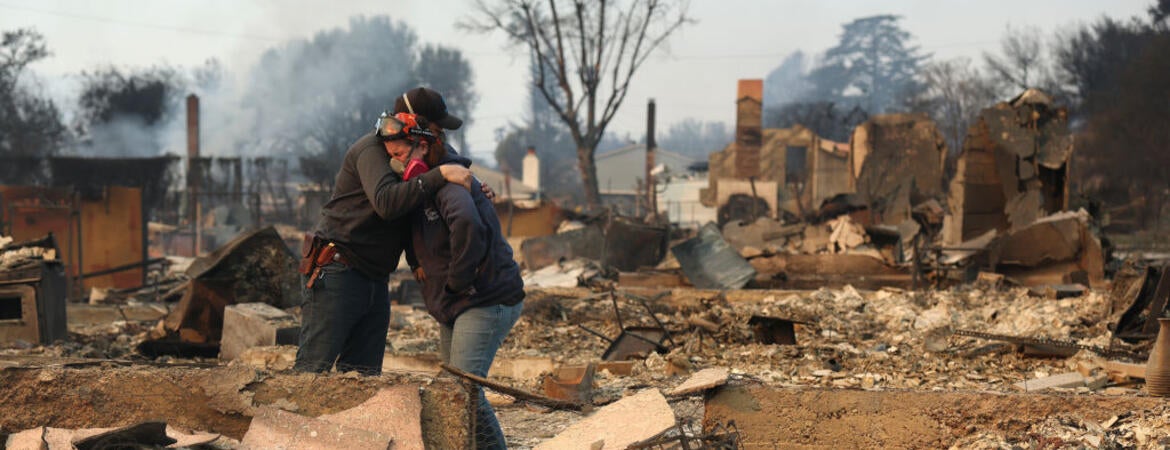
In the midst of death and permanent loss caused by the Los Angeles area fires, compassion is a key factor, said UC Riverside’s John Martin Fischer, distinguished professor of philosophy.
Here is his personal reflection and insight:
How can one wrap one’s mind around a huge tragedy, such as all the loss and suffering in the Los Angeles area fires?
If I just focus on a huge amount of suffering, somehow amalgamating all the loss, death, and suffering into the contents of one big thought, I can’t really wrap my mind around it in a way that resonates, that allows me to empathize deeply.
A thought that big is hard to grasp, and will, of necessity, be abstract and general.
The only way I can really understand this kind of tragedy — understand it emotionally — is to recognize that a huge tragedy such as this is really a big set of individual tragedies. Here’s the way I think about it: I focus vividly and intensely on what it would be like for me to lose all the material things I care about in a fire — my house and all its contents (including family photographs, important personal documents, heirlooms, etc.), and perhaps also my beloved pets (I currently have six indoor cats and one that goes in and out). To imagine what might have happened to my pets is so painful that I really would have to pass that over quickly. The experience of “losing everything” in this way would totally devastate me.
No silver lining, despite what some benighted souls might say.
Next, I recognize that tens of thousands, hundreds of thousands, of individuals have experienced similar disasters as a result of these fires. I don’t try to think of them all at once, or somehow picture the entire collection of tragedies. Not only is that impossible, but a tragedy like this is fundamentally a collection of individual tragedies.
I can grasp what my own unfathomable pain would be like, and recognize that many, many others are experiencing something similarly devastating. There’s a sense in which this is not a bigger tragedy than a single house burning down, but so many more tragedies. That’s what makes it much worse — so many individuals (and families) are experiencing their own terrible individual darkness.
I can grasp a big tragedy because I can grasp what my individual suffering would be like, and I know a big one is a collection of small ones like mine, each terrible. I can thus really and deeply empathize with the victims in all their individuality, but not as an abstract group.
John Martin Fischer has authored four books on life and death and is a frequent speaker on near-death experiences. Fischer also directed The Immortality Project, a collection of philosophical, scientific, and theological developments that advance the understanding of immortality and how this is relevant to the way people live in the present. Read more on Fischer’s most recent co-authored book, “Should You Choose to Live Forever?: A Debate,” published by Routledge.




